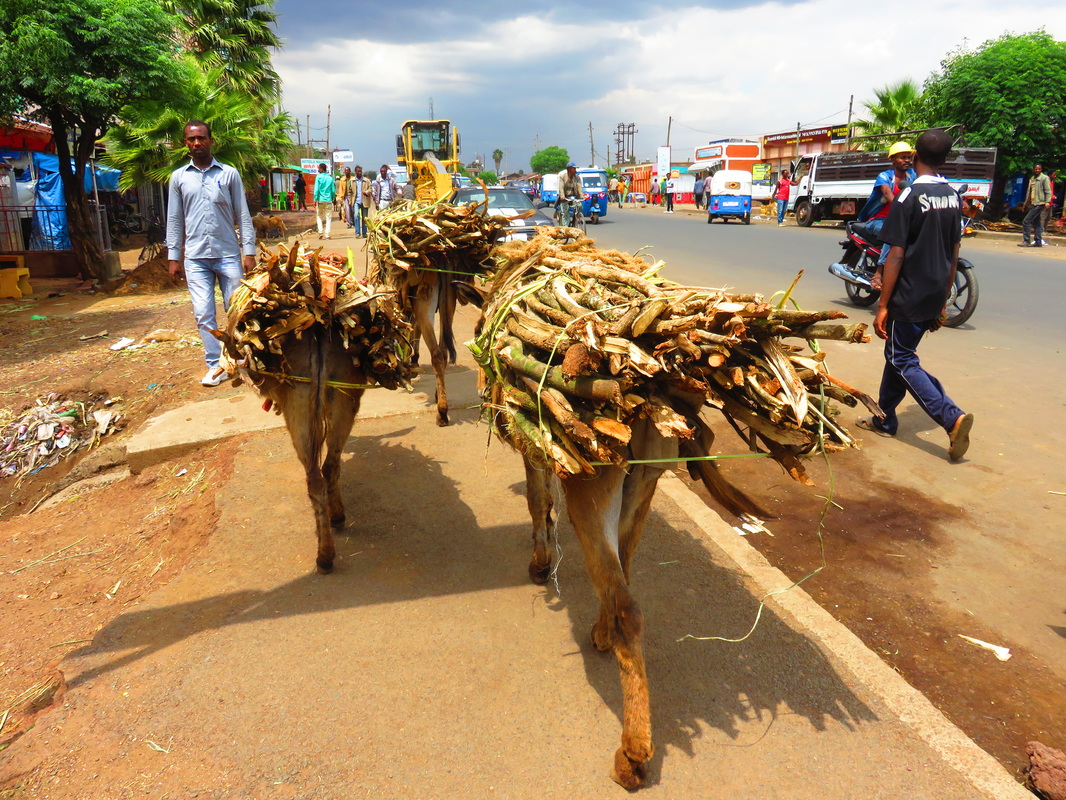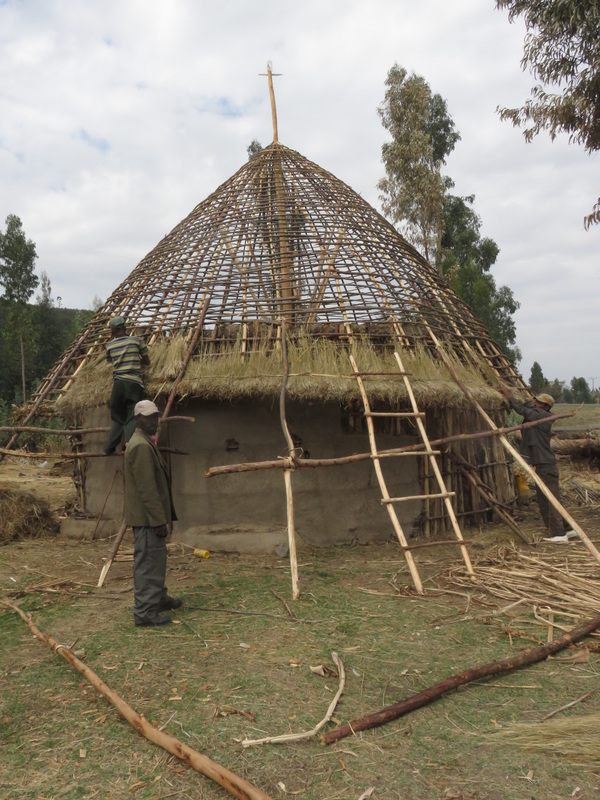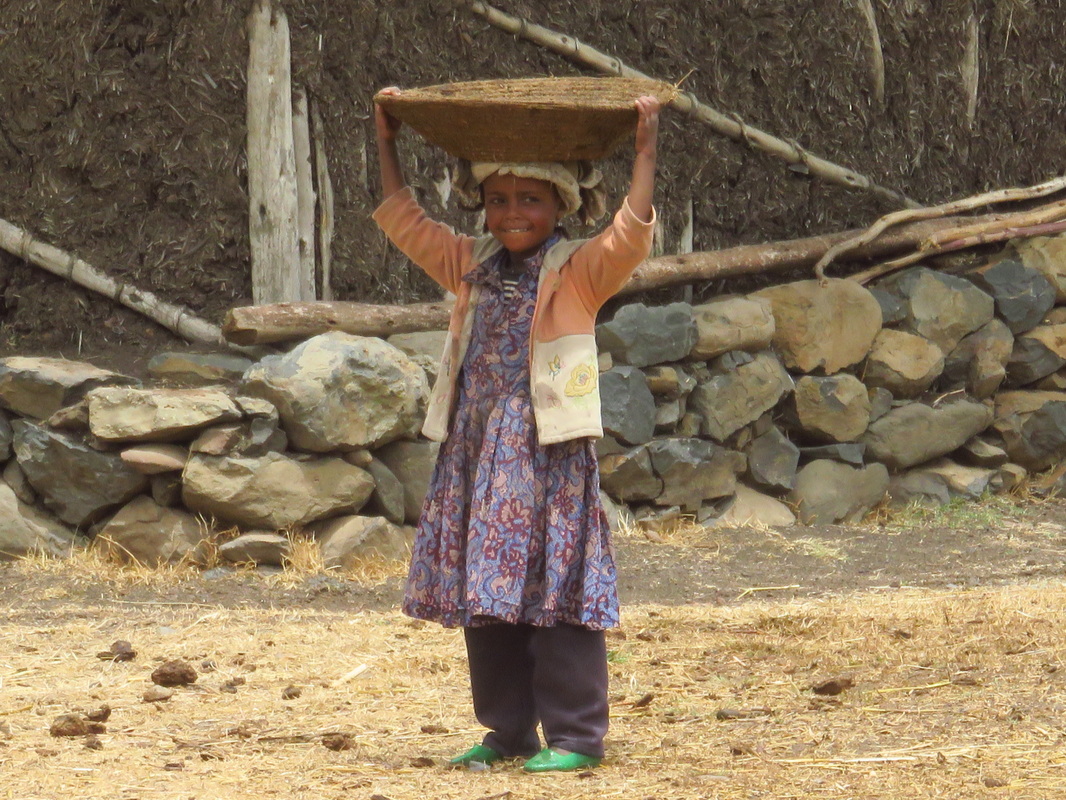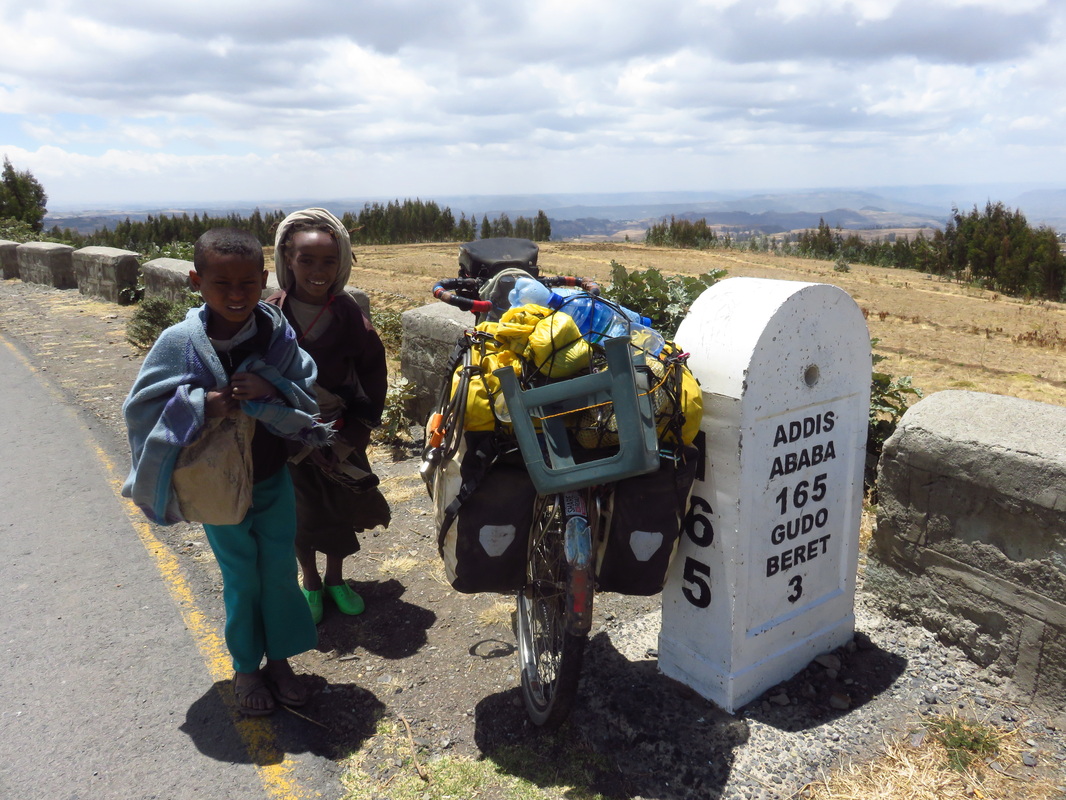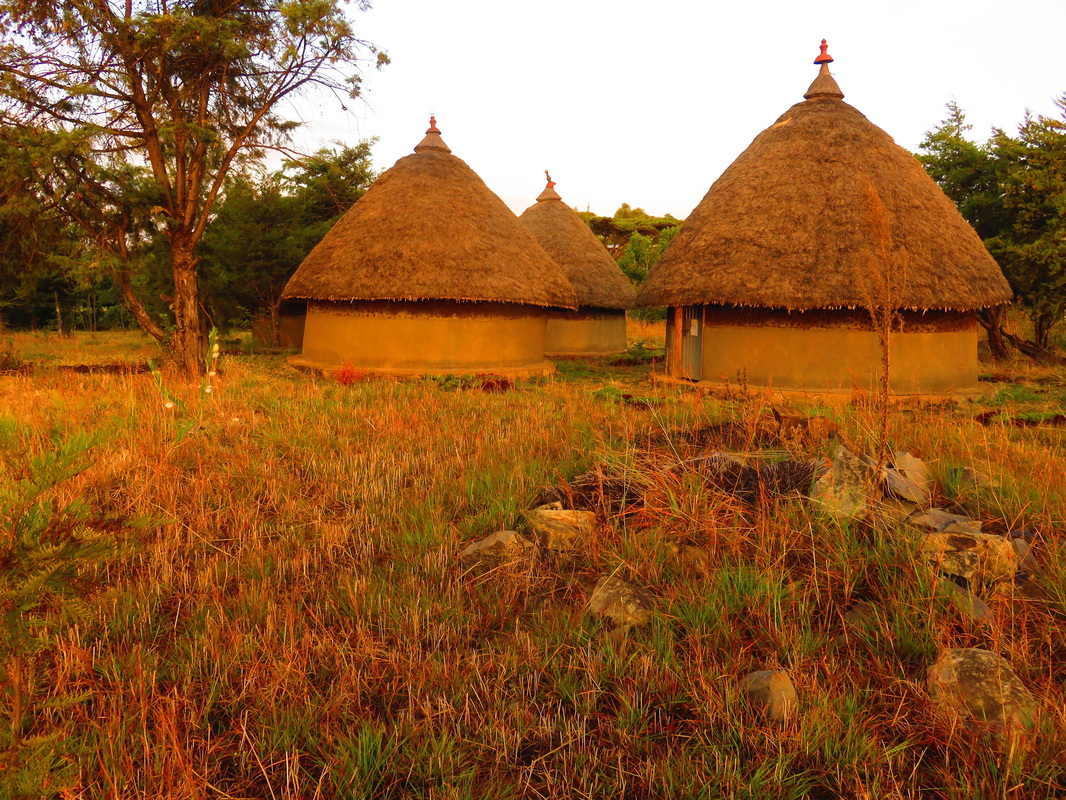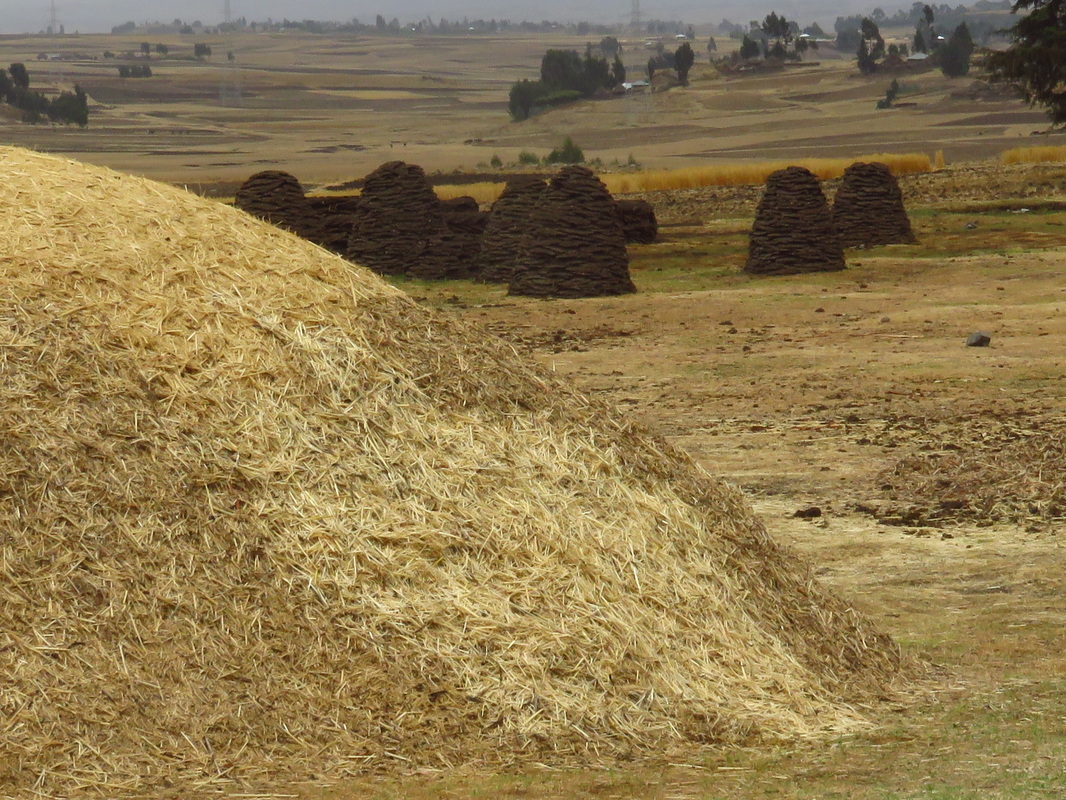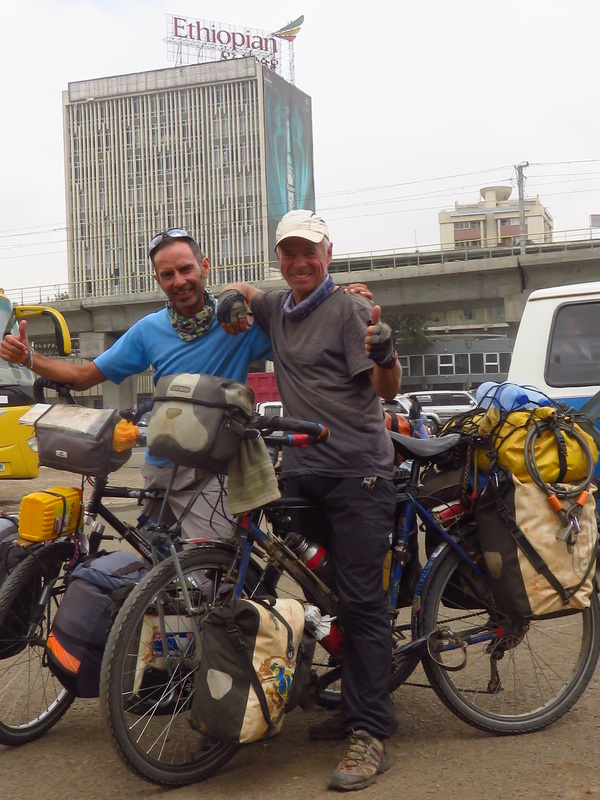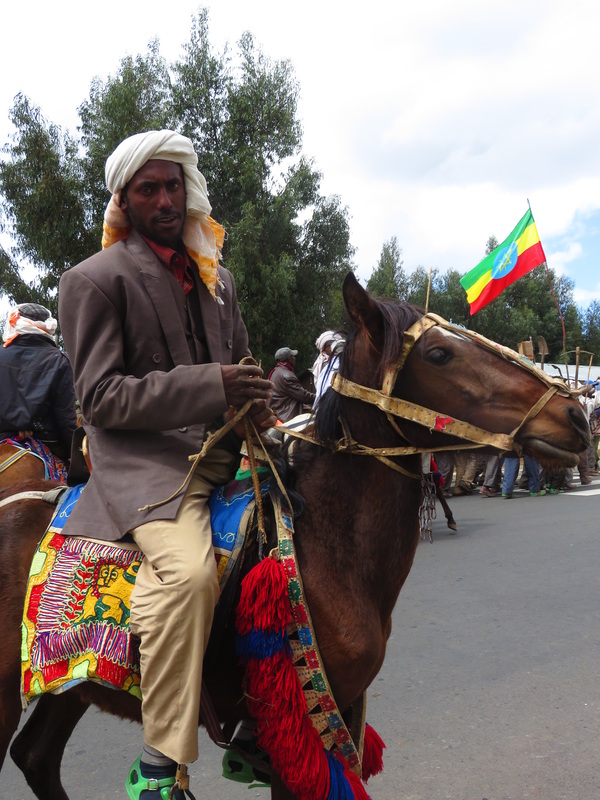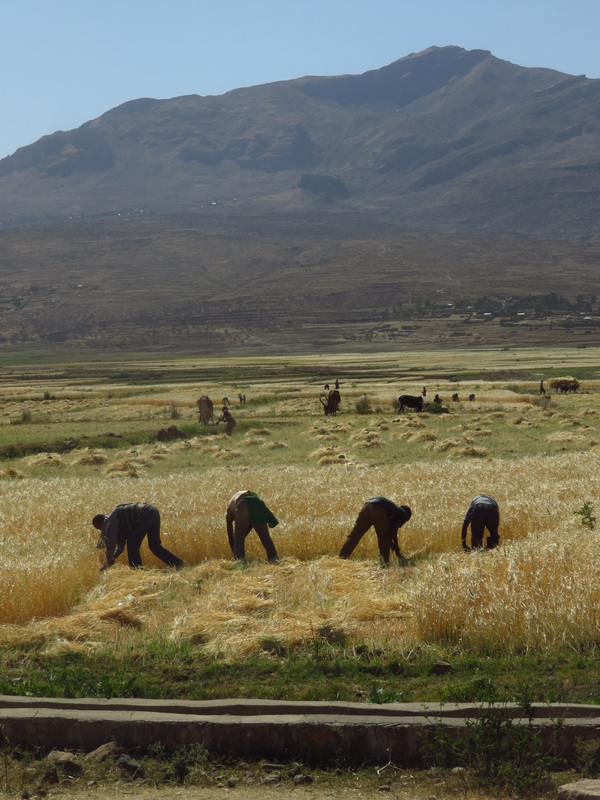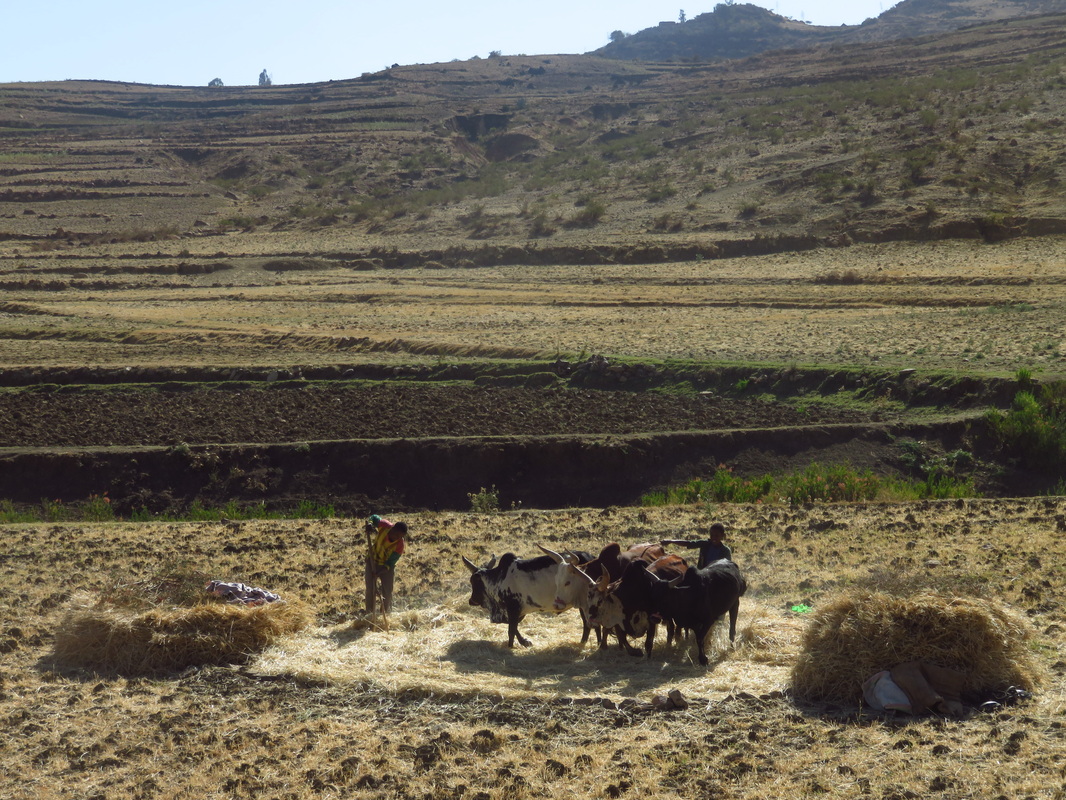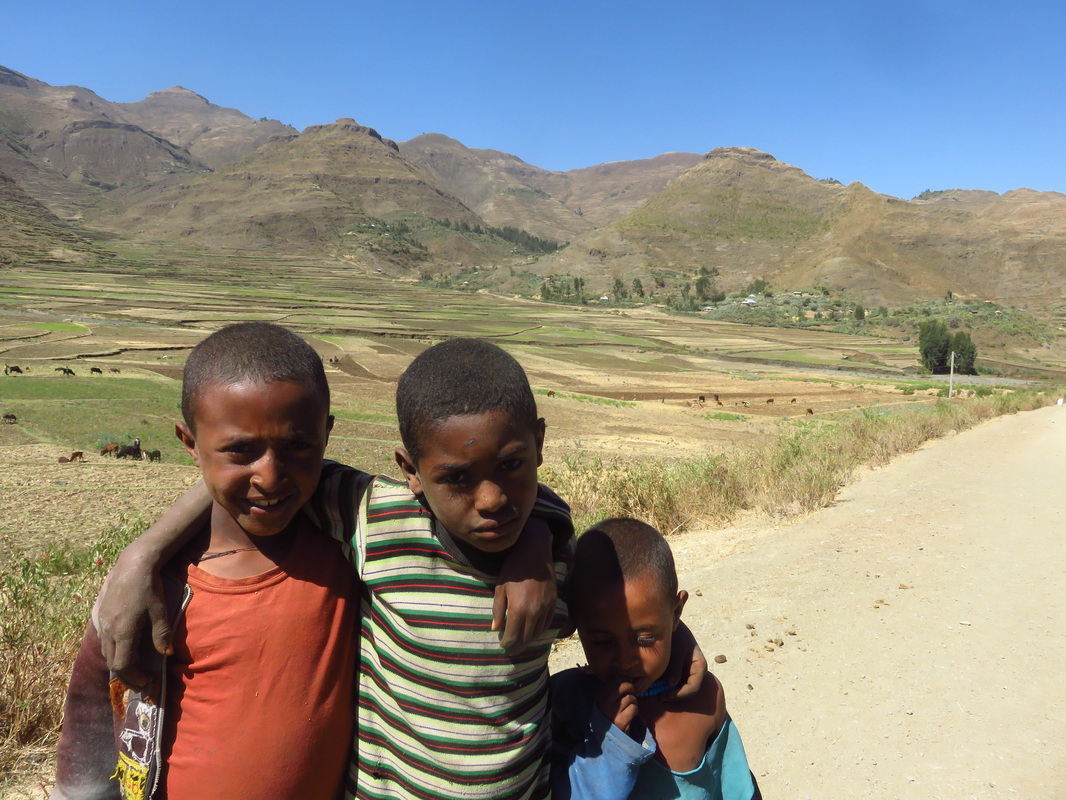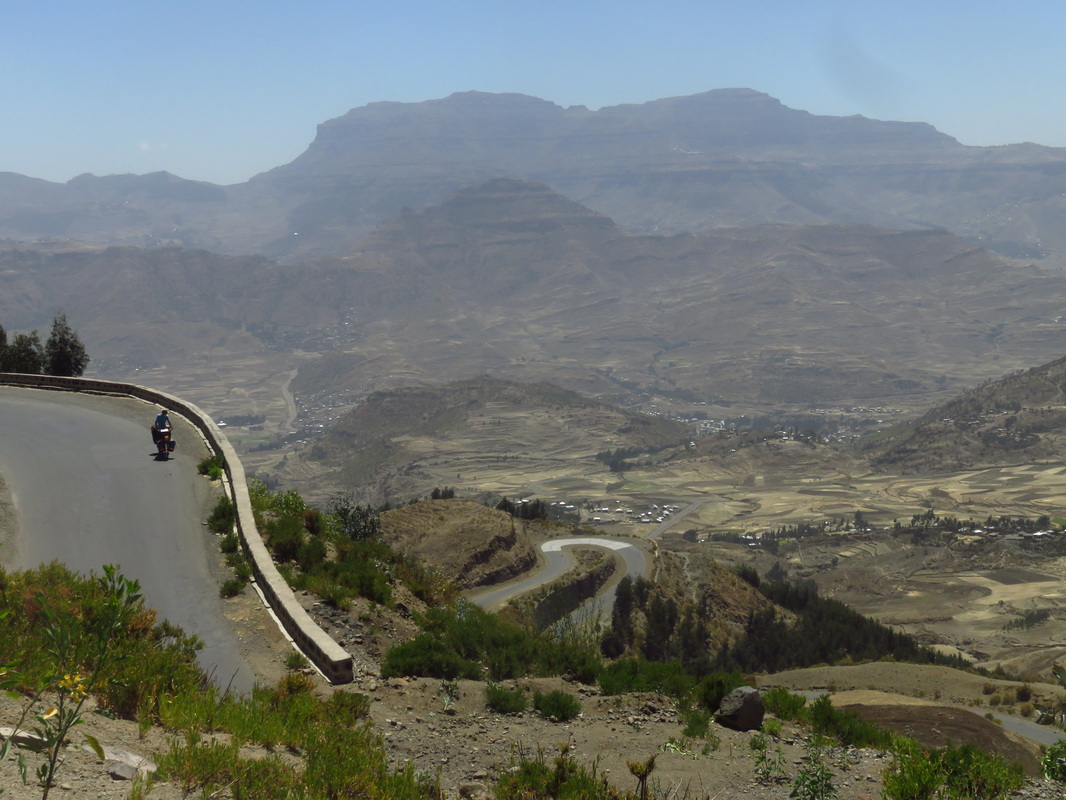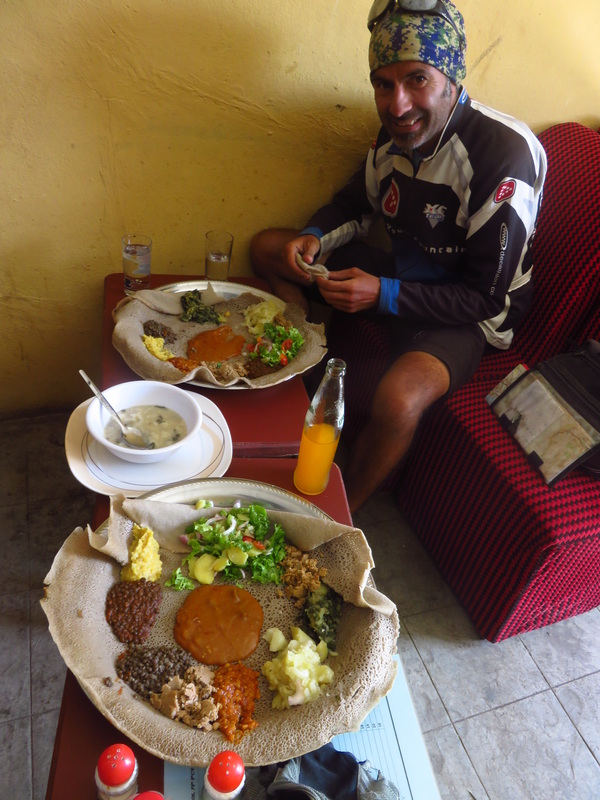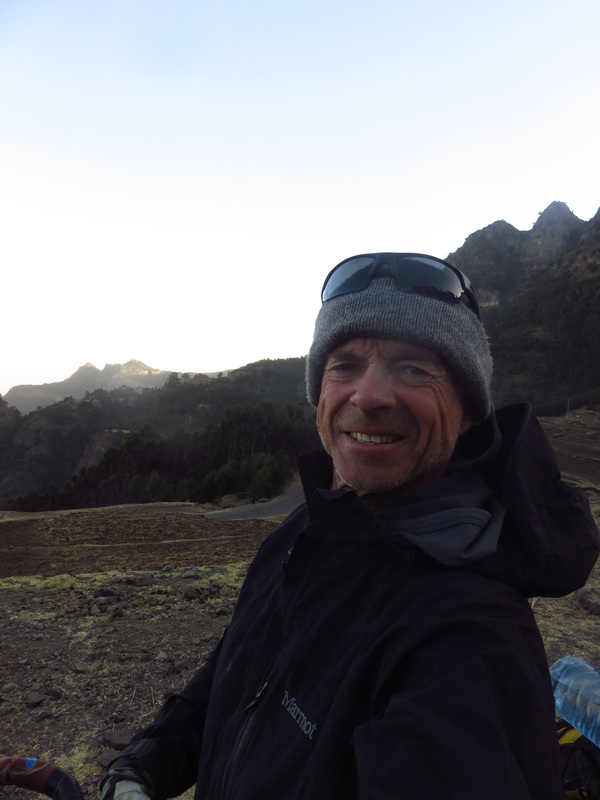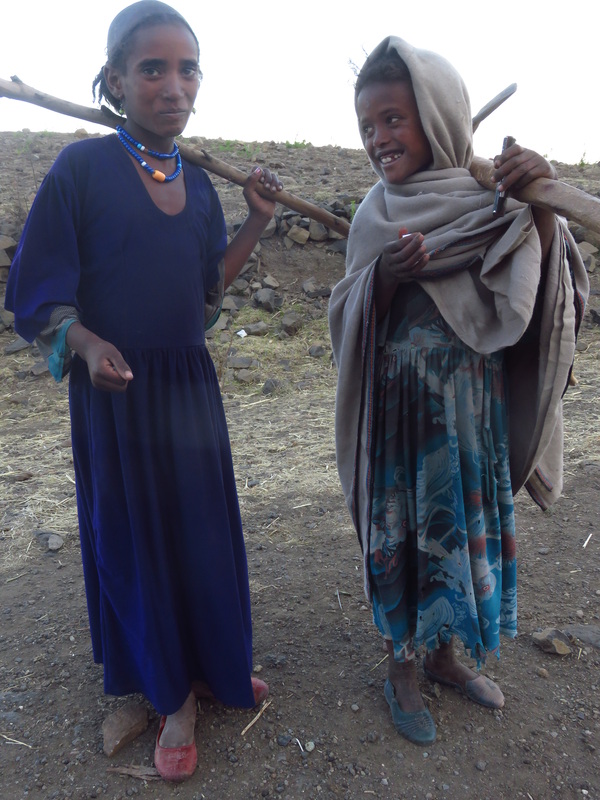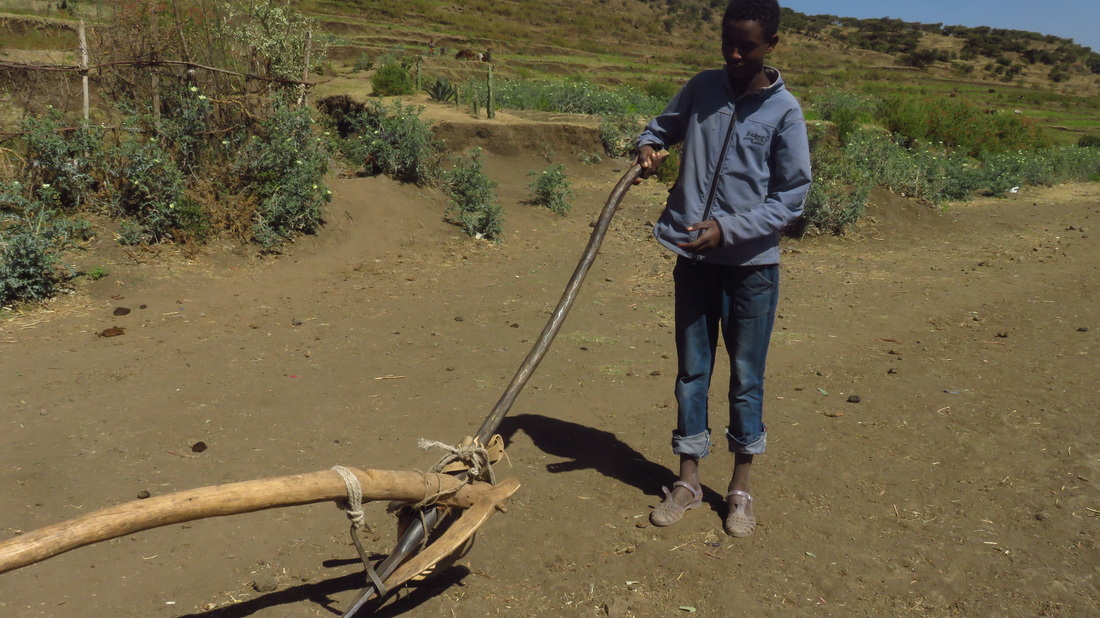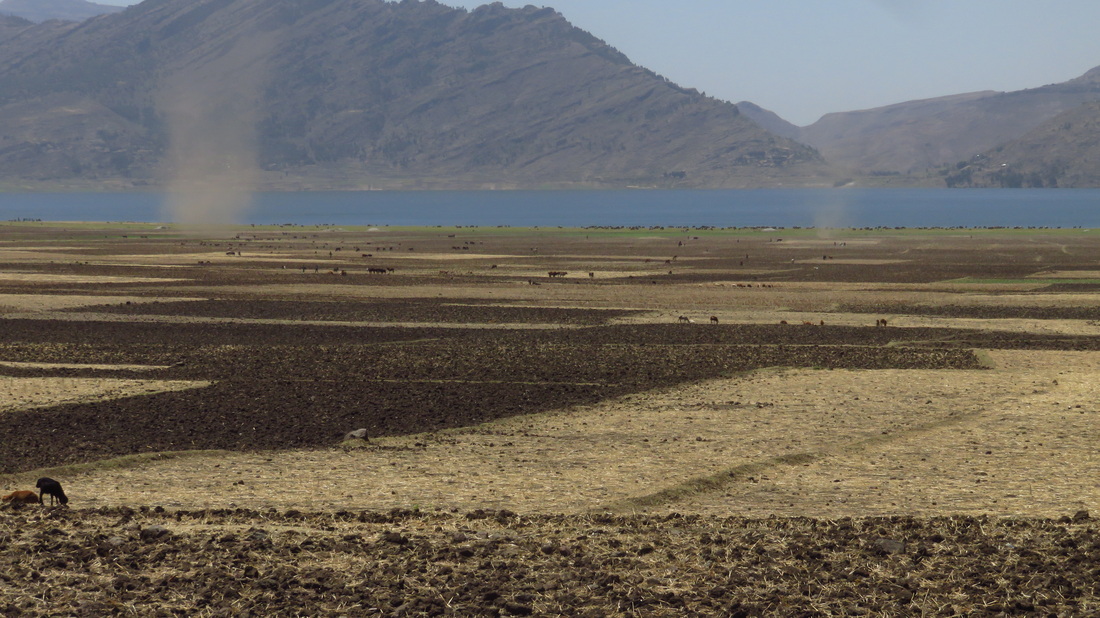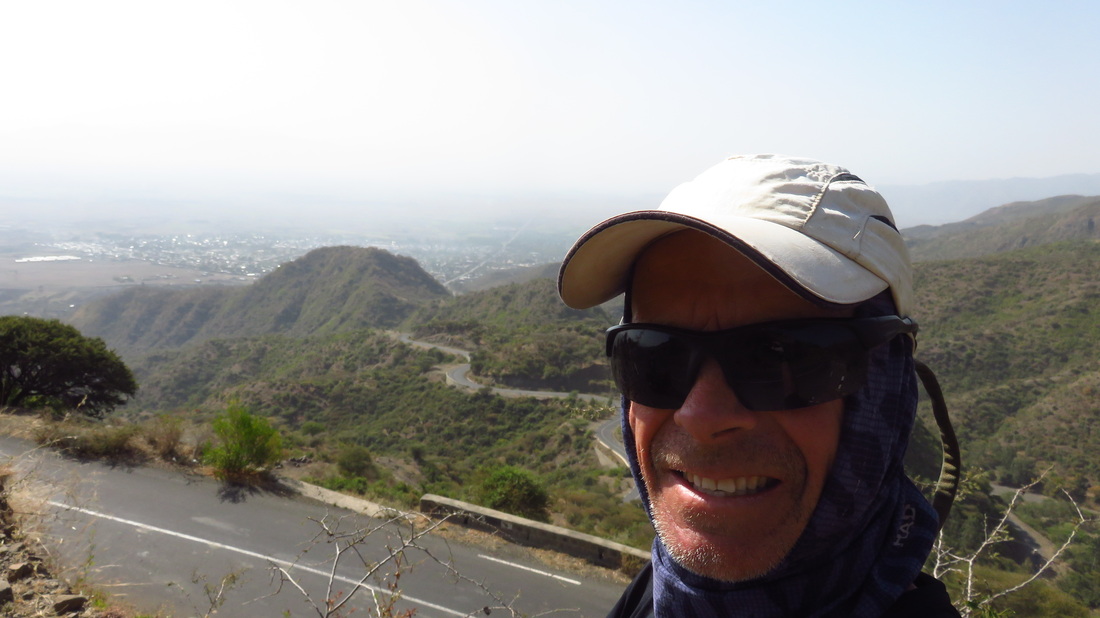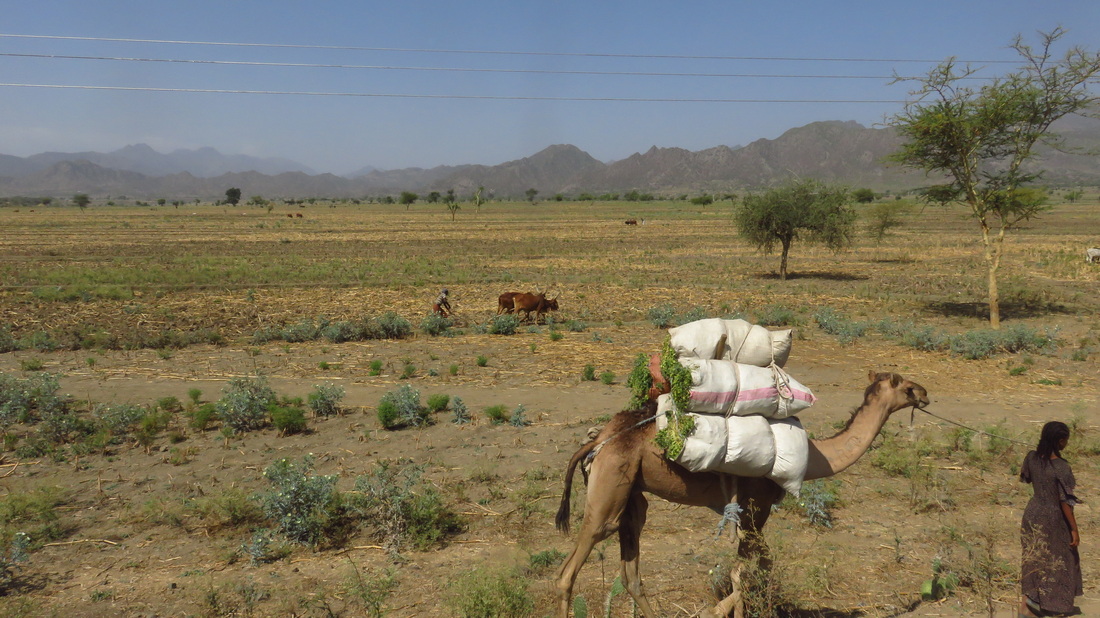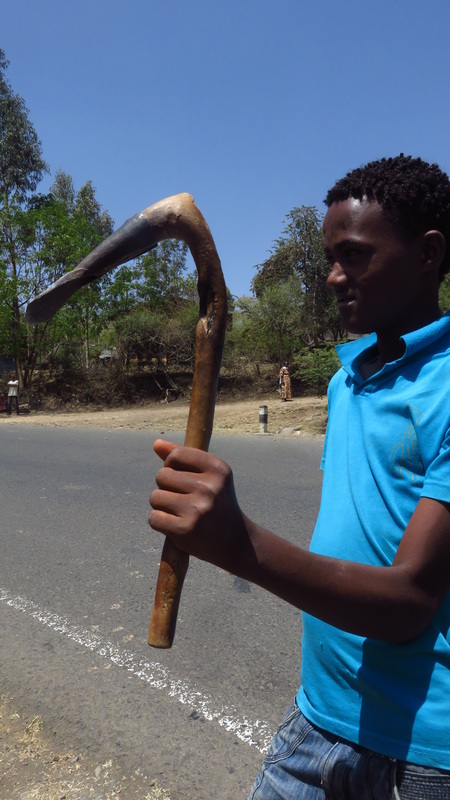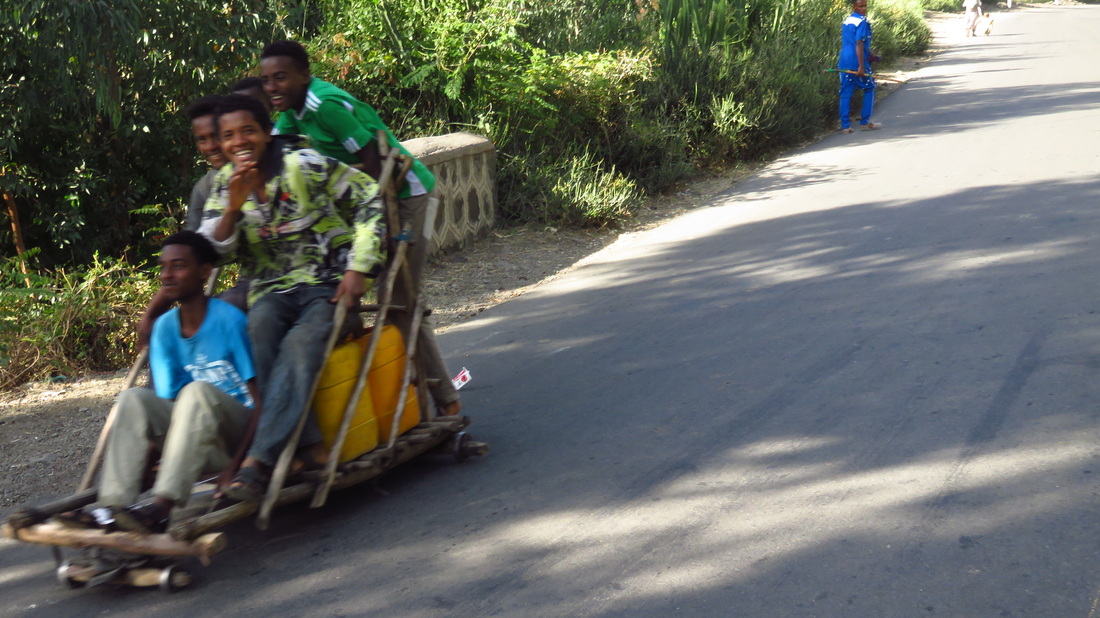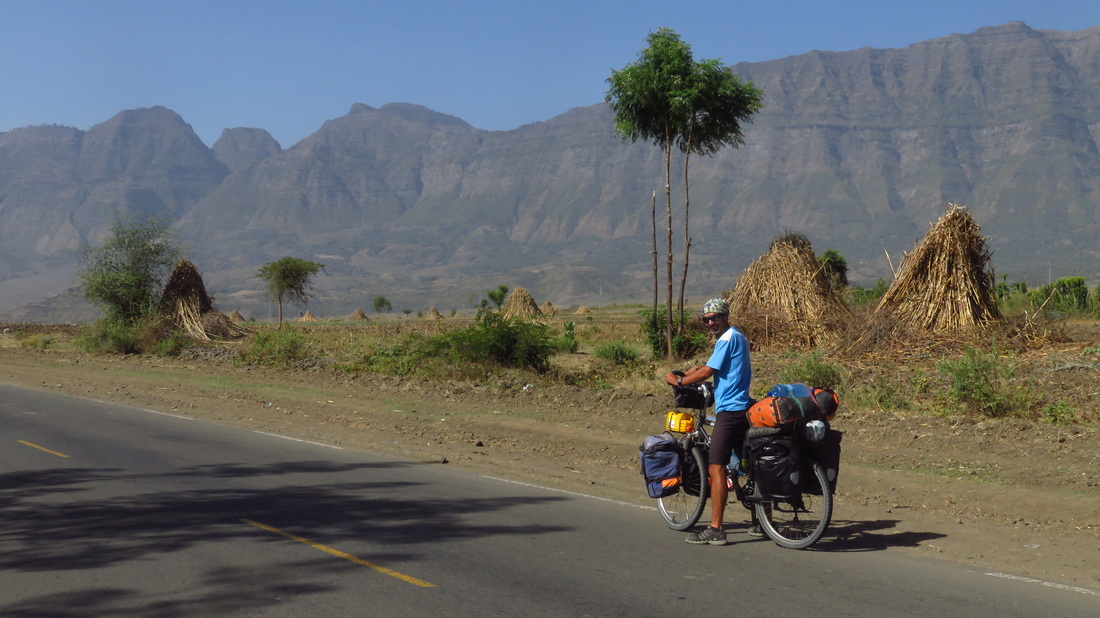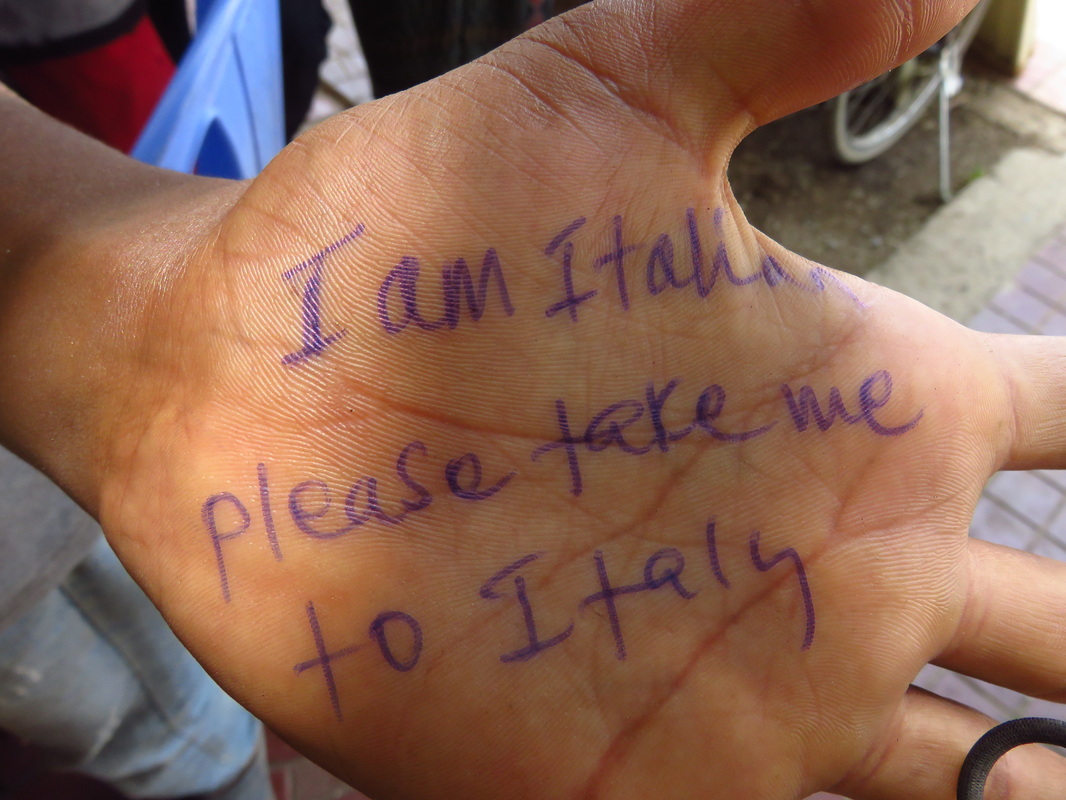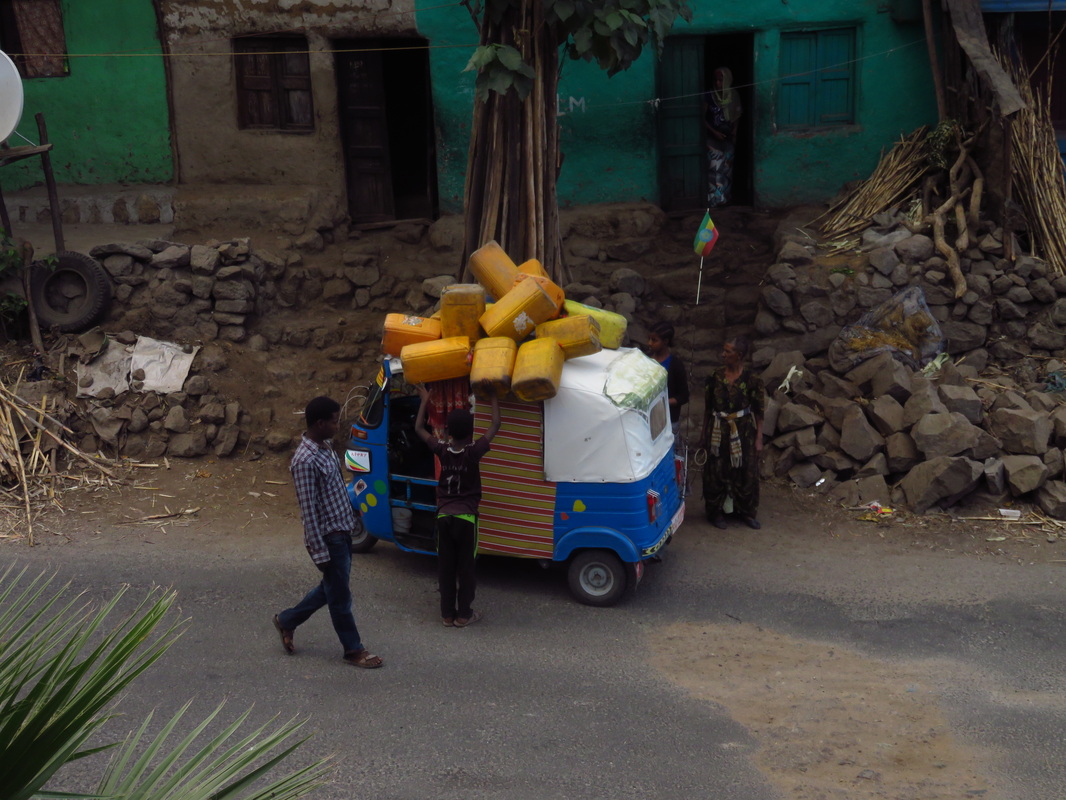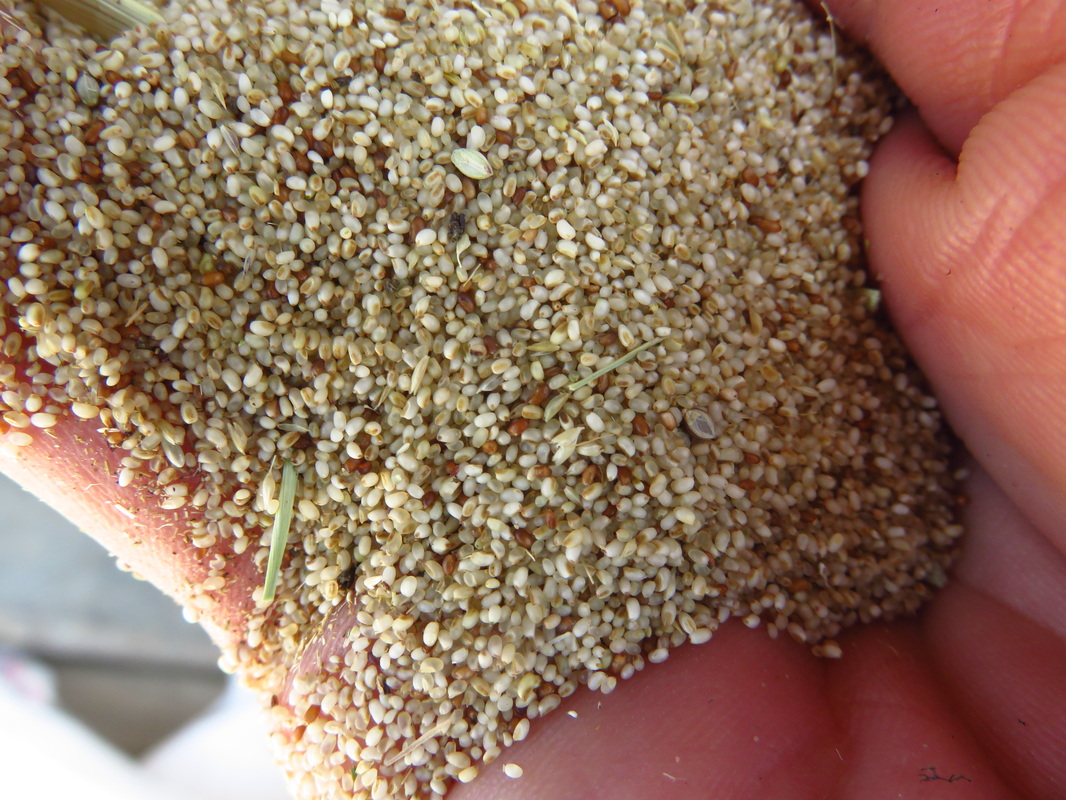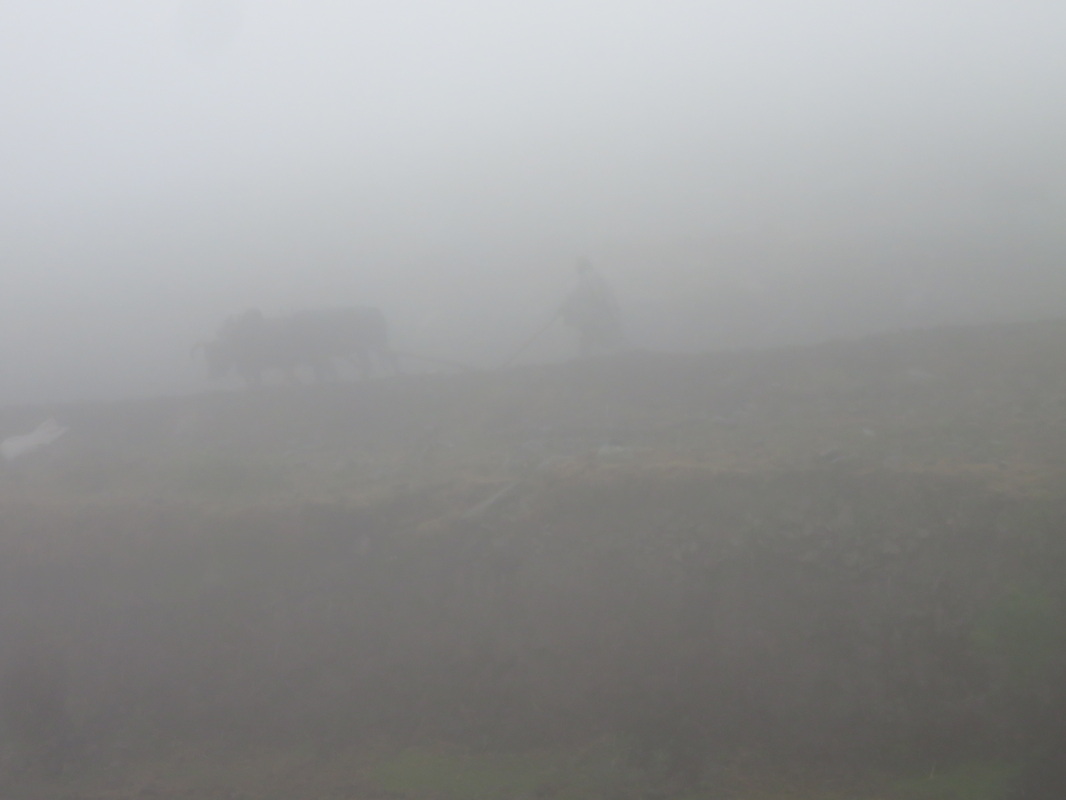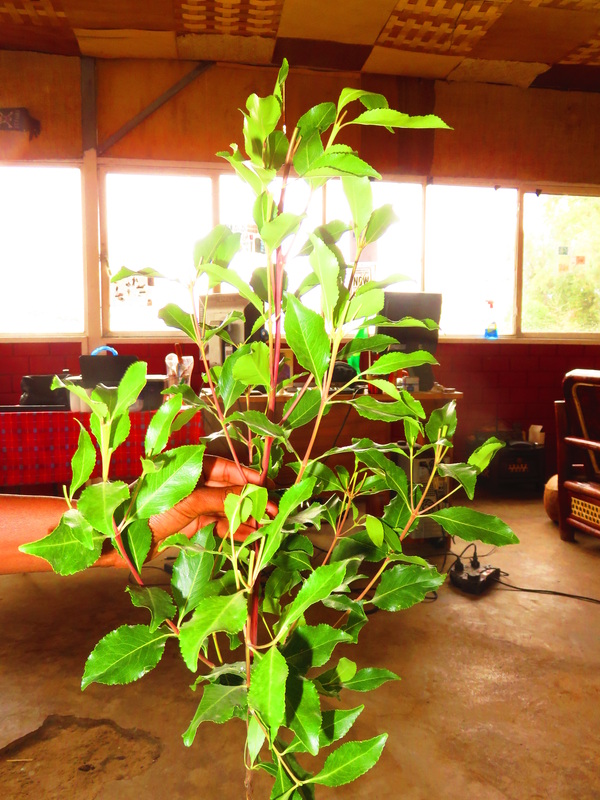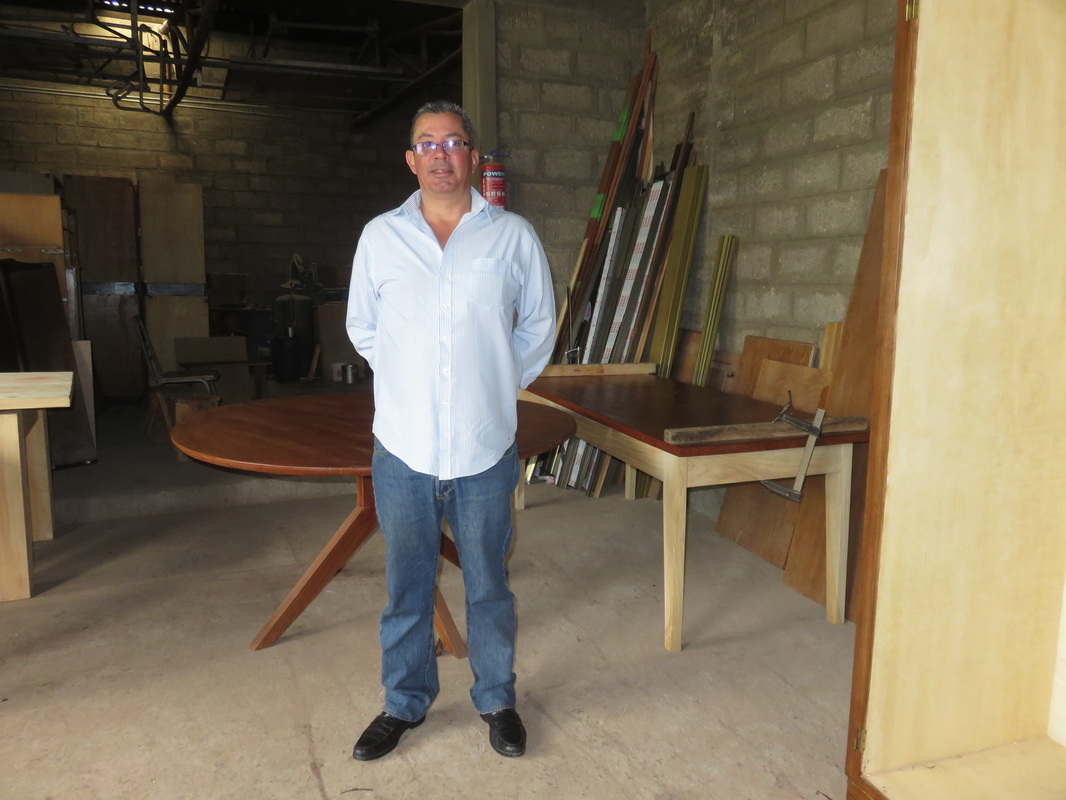16/3/2015 Dese to Kombolcha
D23, T1, Av21.7, Max 50, 38,746, 3,778
All downhill
We decided to leave Dese to try and find a hotel 25km down the road at Kombolcha. It took awhile to find a place in town, most were very expensive by Ethiopian standards. We finally found a place on the left. The internet was used in town. The speed was the best here to date, a few pics were even uploaded to my blog.
The town was a largely Muslim community, so we found a restaurant that served meat. A huge meal of beef was consumed, it was so good. Here in the restaurant much time was spent talking to a woman from Seattle, an Ethiopian. Like other Ethiopian expats, she didn’t like it here but came back to see family. She said they are forever asking for money.
She caught malaria on two occasions but is now bringing Malarone each time. Soon I will start taking Mefloquine for the same disease.
The afternoon was spent updating my blog.
At 1800, the power went out in the town and was not restored the whole night.
This is very normal here, almost every night there is a power outage for at least an hour or two.
Sugar cane in 300mm lengths is for sale in most towns. The chewed fibre is spread all along the roadsides.
Reading about the benefits of the raw product, which incidentally, are unbelievably good. I have decided to carry a stick with me as I ride.
We both had to cook in the dark at the hotel.
Pedro found a place that sold fresh yoghurt, some of which he bought.
17/3/2015 Kombolcha to Karakore (Karakore Hotel)
D95, T5.19, Av17.92, Max 57, 38,8841, 3,873
All downhill, with a few gentle climbs
We had decided to leave early, the power had been off all night and was still off in the morning.
Always up early for ablutions has its advantages, the squat toilets are dry at that time of day. In the Odem in Dese, the smell was unreal, with guys just leaking from the doorway. These hole in the ground affairs just can’t cope. At times, it is hard to just put your head in the door let alone spend time inside.
This hotel was no different.
Pedro was ready before me so he left. Oliver had told us it was a good 170km downhill run.
Leaving town, I needed toilet paper, kepia, honey and some dabu, bread.
These were easily obtained on the way out. I stopped at a tyre place, the guy put air in my tyres and asked for 5 birr which was a farangi price big time.
After 40 km, I caught up to Pedro. Before then some guys from World Vision were spoken to. They had told him I was not too far behind.
I caught up and we had a chat and I took off ahead. It nice riding this way, we know each of us is there but can still ride our own pace. Mine is often faster than his on the flats.
We arrived in a small village and had a mango and avocado juice. Almost next door was a Muslim owned restaurant. It was busy. There was a room out the front where men were carving up beef s people ordered it.
For the first time in my life, raw beef was eaten with a fiery sauce. The meat was cut into small pieces and was from the best cuts. It was like sashimi in many respects. The sauce had me sweating and reaching for bread and water at every opportunity. Pedro had a cooked version.
The riding had been great all morning, just cruising downhill.
This town was 90% Muslim, it was like being back in Sudan. People were super friendly and had great senses of humour.
One boy came up to me with some English writing on the palm of his hand. It read- “I’m Italian can you take me to Italy”. I poked him in the stomach and told him with a laugh to get outta here. The others in the restaurant followed suit.
He was about as Italian as the food on my plate.
From here there were villages every 10km or so.
A few spots of rain fell, there was a storm brewing to our west. The low pressure dropped the temperature, which made riding very comfortable. The humidity was noticeable.
The countryside as usual was fully utilised by agriculture. There is absolutely no habitat for any animals other than birds.
A small kingfisher was seen in a creek on the lookout for an easy meal. It was a treat to see this little character. Most other birds are introduced.
Stopping in one village I bought a Mirinda , up till now we have been paying 10 birr, I asked to pay 8 birr and the owner agreed, so that will be my new paying price for Coke and the like in glass now.
Earlier in the day I had stopped at a little shop with two attractive girls serving, the sold me two litres of water for twelve birr.
This was an Ethiopian price. I thanked them many times for their honesty. They understood me. It is times like these that make you forget about all the people trying to overchargecus.
It happens everywhere. I don’t even bargain anymore and just walk off.
Come 1500 we arrived in Karakore. Pedro was ahead of me and was outside the sonly hotel in the small village.
He was with the owner, a man in his early sixties. He had been a well built strong man. He told us he was sick.
He said he was ready to go as he put it.
We spoke about it later. He told me he had bad diabetes and had it for 6 years. I told him many young people in Australia die from cancer and especially heart problems due to poor lifestyles. Though there is help for diabetes.
The rooms were super basic, tiny, no power plugs but comfortable and up the steepest stairs imagineable.
I took my bike into the small room. It was put on the double bed and leant against the wall.
I sleep better knowing it is safe.
About smart phones for this kind of travel. I find the Samsung S4 perfect, as the battery can be taken out when flat and a fully charged one put in its place. Now travelling with 4 x S4 batteries I am never without power. I feel this is better than a power pack. The batteries are only six or seven dollars in these countries.
Other models, the Iphone for example you have to wait until a power pack charges it.
Plus, with my PC moving files is just a drag and drop procedure, it is that easy.
Riding along the road, I always greet people my age. Sometimes you see these extremely proud men and woman. They have strong facial expressions. They are incredibly poor. It is so sad. It makes me think if these people were born into a life like ours, they would be as successful as the next person. They just don’t have these opportunities.
They have no way out of their predicaments. There is little opportunity here. The lady from Seattle told us that university here is very expensive. Only the privileged can go. This keeps the poor where they are.
She spoke poorly of the government. These kind of autocratic governments like the poor to stay just that way. Educated people can cause trouble. Education is one way people can improve their lot. This is not possible for many here.
The look on these people faces as I ride past as they greet me with great meaning is sometimes quite disturbing. When I think how unequal our worlds are.
Then the next people ridden past will just want money and call you, you.
18/3/2015 Karakore (Karakore Hotel) to Sherwa Robit, 1289m
D64, T3.4, Av17.69, Max 54, 38,905, 3,937
All downhill, with a few gentle climbs
Pedro had an almost sleepless night due to bed bug problems, in the end he slept on the floor. They bothered me to a much lesser extent.
The rooms were so small my bike was put on one side of the double bed just to get it into the room. We had breakfast on the balcony overlooking the main road in town, it was narrow and bordered by ramshackle old but liveable dwellings.
People were on the street with their yellow 20L containers, that are such a part of life here. A woman roped 6 together by the handles and loaded them onto the roof of a wasp and headed off to the local well.
Few if any people have tap water in many villages.
We were on the road about 0800. Some 5km from town people were down at a ford across a small creek. Here I washed my legs and sandals, both were dirty after 3 days without a shower.
At this crossing off the main road, people were washing clothes and themselves. These creeks are all polluted. Even the 100mm of water flowing over the concrete ford had a milky colour.
There is almost nowhere people have not been and do so every day, the country is so populated with people trying to survive off the land.
We both felt quite worn out before the day had even begun. Pedro watched some football across the road where we had dinner with a local guy that could speak English. I shouted him the meal.
We rode separately most of the day, again it was almost all downhill. At times groups of 6 or more donkeys were seen walking along the road hauling the yellow water containers.
At one point on a gentle corner, a truck had just rolled over and lost its load of empty beer bottles which were in shards all over the road verge.
Most smaller, to medium trucks are grossly overloaded. Both in weight and volume. It is not unusual to see a truck with a load 3m or more above the height of the cab.
Many trucks cart the long Eucalypt poles, hundreds of them in one load. They extend some 4m out the back of the trays and at the top of the load extent over the cab. All these loads are stacked manually.
Climbing one small hill many Christians were seen on the roadside making a pilgrimage to their local church.
In another village, a couple of cold Cokes were bought and a guy buying teff for the production of Injera let me weigh my bike on his scales. Only the back wheel would fit on. This came in at 40kg.
Usually in most towns there is a building with a grinding mill inside. People bring teff or wheat here to be ground for Injera or bread. There is always a mechanical noise and a powdered white vent in the roofs of these buildings.
We arrived at the busy town of Sherwa Robit about 1530 and booked an upmarket hotel above a busy cafe on the right as you get a bit into town.
The rooms were large and clean. Though we still had to shower with a bucket.
We ate pasta in the cafe below.
I bought Mefloquine for prophylactic medication of malaria. They were so much cheaper than in other towns especially Gondar.
They were 50 Birr. I will begin the course sometime after reaching Addis Ababa.
I have decided to take preventative medication. This is the most economical for long periods in malaria zones.
My room was above a bar, so a broken sleep was endured.
19/3/2015 Sherwa Robit to Debre Sina
D33, T4, Av7.9, Max 36, 38,938, 3,970
Climbing all day.
We knew today was going to be a big day climbing, this was one reason we booked a good hotel to get a decent nights sleep.
Leaving town a river was crossed, here all over the riverbed as for as you could see were people walking , bathing or washing clothes.
There was rubbish spread across the gravel below and beyond the bridge. I stopped here and got off my bike and just took in the whole scene. It was a situation where I was once again witnessing what happens when human numbers are more than the environment can cope with.
From here leaving town the road slowly ascended up the valley. Near the end of the valley, the climbing began.
There were not a lot of switchbacks but just steady uphill work. The temperature was cooling off as we ascended. We stopped regularly. I enjoyed sugar cane on the way up. This really gives me a lift.
Bread and bananas were also eaten.
The people for the most part did not hassle us too much. I had a bit of an upset stomach so the going was tough.
Pedro was well ahead of me most of the day but we always caught up and ate.
Nearing 1530 we took a break and knew there was only some few km to the town. Once there we had a meal of pasta and a coffee.
Most hotels were expensive. We found one with a large room with two beds so decided to share for the night. This motel is across from the one on the left with all the neon signage.
This town is a kind of hub for the area. Many people on the way up the hill were getting out of mini vans with all sorts of things from the big market here.
We went to a Muslim restaurant and had a meal of meat for energy tomorrow.
For the first time in weeks, the bed sheets were used.
20/3/2015 Debre Sina to Debre Birham
D59, T4, Av14.14, Max 64, 38,998, 3,996
Easy climb to top then more or less downhill
Cold and wet on tops
We were prepared for another big day. I bought cane and bananas with bread in town.
Whilst there, the room padlock keys fell from my pocket. The owner gave the lock a hit with an iron bar and it opened, that easy. He charged me 20 birr for a new lock.
It had rained overnight and low cloud blanketed the town. The road from here was in large traverses and was not at all steep.
A couple of guys joined me on their bikes up the hill for awhile.
The vegetation was Eucalypts and fir trees, soon the cloud set in and the temperature dropped considerably.
Visibility was reduced to 30m. The air had a lovely smell of Eucalypt oil on it.
There were three tunnels on the way up. One particularly long one saw me using my lights.
We both could not believe it when we got to Tamaber, it was only 8km up the hill. This was the pass.
Altitude wise.
The height at Sherwa Robit was 1316m, Debe Sina 2471m and Tamabar 3153m.
From here, it got extremely cold, the temperature was around 10 degrees. It was raining and visibility was now down to 10m .
We doned raincoats, gloves and longs, with our beanies.
I left my sandals on, so soon had cold feet. The road stayed around this altitude for a few km. Then started descending. In no time, we could see off into the valleys, the sun was out and it became warm.
Soon we started a good descent and all the way to Debre Birham was just a series of little climbs and back down again.
We arrived in town at 1600 and booked the first hotel on the right.
It had a suicide shower heating system, so a hot shower and shave was just brilliant. We went and ate pasta down the road. My stomach is now quite upset. I have a nauseas feeling.
We slept till dark. Pedro went out for dinner, I just couldn’t stomach more pasta. So had hot chocolate and some noodles in my room.
It is quite cool here and the rain fell much of the later afternoon.
21/3/2015 Debre Birham to Sheno
D55, T3.5, Av14.23, Max 57, 39,052, 4,051
Great riding in gentle open rolling country
Cool and overcast
I had been up most of the night with Diarrhoea. Come the morning I felt pretty ordinary and could only stomach my morning coffee.
Slowly leaving town in the cool of the morning. My attire for the day was long pants and my sandals with socks.
At a restaurant on the way out, scrambled eggs were ordered, that was all I could eat.
My stomach had been out of ordinary for a few days. Some sugar cane was being cut and a small piece fell on the side of the road. This was picked up and scraped clean. Maybe a germ was picked up on this.
The riding was easy through an open plateau area, exposed to a cool easterly. It wasn’t long before the need to go to the toilet started again, no fewer than 5 stops were made to go to the loo in ditches on the side of the road.
By the time we got to Sheno, I was very weak. We found a great hotel on the right side of the main road in the middle of town. It had hot water in the shower.
Once showered, I slept for 4 hours, my energy levels were low.
I had terrible stomach pain. That evening nothing was eaten again.
Nausea had overcome me, to the point where even the thought of food made me feel like being sick. The sight of the dirt everywhere didn’t help.
This has happened on a few occasions.
Back in the room, two Imodium’s were taken. They actually settled things down. Due to the large sleep earlier. My lights did not go out till after midnight.
22/3/2015 Sheno to Gendafa
D41, T2.2, Av17.56, Max 66, 39,094, 4,092
The easiest of rides, almost all downhill
Cool and overcast
Pedro called over to my room, to see if I wanted to stay another night.
I was actually feeling much better, though incredibly weak.
Scrambled eggs with onion and tomato were cooked in the room.
Food had to be eaten, no matter how difficult it was. We decided to just take it easy and leave mid morning.
A trip was made back into the main street. Some bread was bought, to have with avocado, onion and tomato.
Though I was still weak, we got away about 1000. The passage was pretty much all downhill with a few small inclines. A group of road cyclists were seen they passed on their way back to Addis. As usual they were in a hurry and just briefly said hello as they rode past.
Only one stop was made to go to the loo. We descended a few hundred metres on one downhill run. At the bottom, the temperature had warmed up to a comfortable temp.
There was a festival of sorts going on in Gendafa, with large dump trucks just full of people.
It was to do with the upcoming elections.
We found a hotel on the Addis side of town. Washing was done. I slept for a few hours from 1530 till 1700. It was great.
Wandering out and heading up this dirt road near the hotel, a group of cars was seen parked. They were outside a western style outdoor garden bar. In here, a huge meat club sandwich was ordered with chips and sparkling mineral water.
This was so so good to eat. I felt great afterwards.
Pedro had been watching some football.
23-26/3/2015 Gendafa to Addis Ababa (Kenyan Embassy)
D41, T2.2, Av14.85, Max 60, 39,134, 4,133
Still generally downhill, city traffic no problems
Cool and overcast
We both went back to the bar last evening. Pedro ate the same dish I had eaten for lunch. A huge club sandwich with fries.
My stomach was still upset.
We got away about, 0930 and headed towards Addis. The road was busy as expected. Mostly the ride was downhill.
Obstacles on the road made it a ride requiring much concentration. At one point, a group of sheep ran out infront of me.
The air was thick with diesel fumes. People selling cut sugar cane were everywhere.
We rode directly to the Kenyan Embassy, which was on the way into Meskel Square where we had arranged to meet Claudio. The “Couchsurfing” host Pedro had arranged for us to stay with.
At the Kenyan Embassy we went through the formalities, they said the visas would be ready on Wednesday after lunch.
It was still 5km to Meskel square and the Expo centre. On arrival here, we were wrapped to finally be in Addis.
We were both pleased we had taken the northern detour.
This square is a kind of huge open air auditorium, there were rows of descending levels for seats and way across the main road behind the new overhead transit system was the 1st floor stage where previous leaders had held public speeches to the masses gathered standing and seated in the square.
A few hours was spent with an Ethiopian guy who befriended us in the square.
He turned out to be a great guy with no bad intentions. He worked for an NGO and had spent much time in Eritrea. He spoke good English and informed us on many topics of public life in Ethiopia.
We all agreed over population is the issue coupled with a poor education system which in many cases once out of primary schoo,l is only available to those with money. I told the problem with the flash on my camera. He said he knew an Indian guy in a mall not far from here that may be able to fix it.
Pedro stayed in the square and looked after the bikes. On arrival at the mall, the man looked at the camera and thought he could repair it. I was elated.
He said come back at three, it will cost 800 burr or no charge if he can’t repair it.
Whilst waiting, we took Elias out for lunch in the expo centre. Once back in the mall. I could not believe it he had, in fact repaired it.
The best part of all this was not having to discard the camera because one little part had failed. I use flash alot, and have missed it in the last 4 months.
Come 1700, Claudio our host, sent a friend over to the square to direct us to his house.
Here, we had a little self contained room to ourselves.
We top and tailed on the double bed. Power cuts were still the norm.
Claudio was a third generation Italian, a product of colonialism as he put it.
His grandfather established a furniture business here. He took us over to see the operation.
It was a big concern, like myself a few years ago, he was a very busy man. From my experience, too busy.
His life style reminded me of mine when my business was operating. I worked hard and played hard. In the end, it got me. My exit was perfect timing from all aspects in hindsight.
One has to know when to put quality of life and personal health before money and ego.
We were very privileged to be here in the middle of Addis, only 1.5km from Meskel square, on a half acre property, kept private by high walls surrounded by what could be best described as a shanty town accessed by cobbled and dirt streets with open grey water drains.
Our second day in Addis saw us trying to buy some Kenyan Schillings. It was a real hassle and hustle. Finally, the next day separately, we got some. For me I was happy with 3.5 schillings to the burr. Pedro found a small amount for 4 to the burr.
The day prior, whilst we were hunting for the currency together, a bizarre thing happened to me.
We were walking down the street together, when this young boy came up alongside me with a book, which he wanted me to look at. On the other side of me was a taller older guy. He grabbed my upper arm very tightly. Whilst I was struggling, the young boy reached into my pocket, unbeknown to me and lifted my phone. Pedro saw this and yelled “telephone”!. The older guy ran and the young one dropped the phone.
I’m indebted to Pedro, had he not seen this happening, I would have been a victim of a classic scam here in Addis.
It was late in the day, we had walked for miles and my guard was down. It was all quite bizarre and happened so quick.
I could not thank Pedro enough. During the day, many roads had been blocked for cars due to the African Head of nations meeting here.
The military lined the streets in large numbers.
Pedestrians could use the streets, but no vehicles, hence the long walk back from the Kenyan Embassy.
Further research on Malaria, has now seen me decide to opt against prophylactic drugs to prevent the disease.
Mefloquine has many bad side effects like nightmares, lack of balance and coordination and psychological effects. These problems are not needed, whilst cycling. Chloroquine has resistence in countries that will be visited.
I do not want to take Mefloquine for a few months.
The option of doing my best not to be bitten by mosquitos has been chosen.
This will involve, repellants, using a mosquito net and appropriate clothing at night.
Instead, Coartem has been bought. This is a very effective drug that can be taken if the symptoms of Malaria are experienced. A clinic or hospital is then visited.
Here in Ethiopia, malaria is said not to be a problem over 200m altitude.
This is quite a load off my mind, as I was procrastinating about actions to avoid malaria.
The weather here has been mild, with showers most days.
Addis is a city that is not overly congested with cars, more so with people. In some places, people are lying on the footpaths sleeping, begging, crawling, and washing in holes where the town water is leaking.
People are urinating wherever they can. The other is often seen.
Shoeshine boys are everywhere. People selling tomatoes and onions are just as common. There is no excuse to be seen in Addis with dirty shoes!!
Walking through the city has more obstacles than bush walking. In ones path, are deep holes, mounds of rocks, trenches, beggars, loose pavers and of course people.
Many of these obstacles are due to the huge overhead transit project being constructed by the Chinese.
It dominates much of the downtown area.
Like a huge overhead freeway, it will be an electric commuter train. It must have been under construction for years and looks like it will take many more to complete.
People are basically walking through a construction site much of the time. No one is too worried about people wandering anywhere within the work zones.
A visit was made to Mercato, the largest open air market in Africa. This was in most places a mass of Chinese produced products of low quality.
The produce area was the most interesting. Many trucks we saw on the road heading here, were lined up looking for buyers of charcoal and anything else from the rural areas.
Amongst all these things is a city that moves at a relaxed pace with helpful people everywhere. There are a huge number of restaurants and cafes where to eat. These range from the simple 10 burr Injera to 5 star hotel meals.
It had rained and the place was a quagmire, no one appeared concerned.
My diarrhoea is still present though abating. It is nice to know antibiotics were not needed to beat it.
A couple of my night meals have included blanched broccoli and beans, whilst a treat for breakfast, has been cornflakes with honey, bananas and milk.
Our last night here was spent having a couple of with Claudio and his friend Oscar, who lived in Nimbin in Australia, just a few hundred km up the road from my home town of Coffs Harbour. We had plenty to talk about.
Claudio had said the Chinese had been building the transit for only one and a half years. It was hard to believe.
The hope to finish it middle of next year, even harder to believe.
He said all the labour was Ethiopian, the Chinese had wanted to bring inmates from their prisons out here to do the labour. The Ethiopian government quite rightly refused them permission to do so.
27/3/2015 Addis Ababa to Tulu Bolo
D76, T4, Av14.85, Max , 39,210, 4,209
Still generally downhill, city traffic no problems
Clear warm day
On waking up my calf muscles were very sore. We had probably walked 20km through Addis over the last few days.
We said bye to Claudio and thanked him for his hospitality.
Using my phone for navigation, it occurred to me how lucky I was to still even have it.
We stopped at a couple of pharmacies to look for Coartem with no success.
Finally, I found some sardines canned in Dubai instead of the sub quality Thai sardines that are flavourless.
Drinking chocolate could not be found.
The small dent in my rim looks like it will get me to Nairobi. Though on smooth flat roads there is a gentle bumpy motion due to this problem which is exaggerated on the outer edge of the tyre . I can put up with this though will replace the rim in Nairobi.
It was a long haul out of Addis, we had to take detours around Mexico Square due to the transit construction. Once out of the urban area after Sebata, it was so good to be back in the countryside. Our route was not the main road south, so traffic was light. The people on the roadside were friendly. Many welcoming us to Ethiopia.
It was a day of total relaxation on the bike, the sun was out, there was little wind and the road was a good as flat.
I was in a stance of trance, just so relaxed and feeling great.
At time, I had to regain my concentration. Addis in many ways had been hard work with all the obstacles in the streets and navigation. Out here, in the country, it was a real release.
Cruising along in this trance like state, a teenage girl came out on to the roadside we caught each other’s eyes for a short time. She was there alongside the road for no other reason than to look at a white person.
The thought occurred that she may have never seen people like me other than in pictures and on TV. She had that look in her eyes.
For me too it was a similar experience, once I stopped to think about it. Such are the moments here on the road.
We stopped for lunch in Tafki, a simple pasta was enjoyed. We had a large crew of guys joined us. They were all looking at my map. They had it wide open and were all discussing different areas together. It was quite possible they had not seen a good map of their country.
On arrival in Tulu Bolo, we looked for a hotel and settled on the hotel Tulu Bolo.
It had ground level rooms and a common shower. A couple of schooners of Saintt George were enjoyed before promptly falling asleep on my bed for an hour. We enjoyed a meat meal at the Muslim restaurant on the main corner in town.
Though there was noise in the bar outside, sleep was rapid, it had been a pleasure on the road here in Southern Ethiopia, our time in Addis had been so relaxing staying at Claudios.
My diarrhea has past, it is great to know it has been beaten without antibiotics.
28/3/2015 Tulu Bolo to Wasilo
D35, T1.5, Av18.43, Max62 , 39,210, 4,244
Slow incline than down hill
Clear warm day
Luckily the bar was quite most of the night, we both slept well. Once again, the locals on the roadside were more welcoming to us than asking for money and other things. We guessed that not to many cyclists use this road.
Riding was easy in a tailwind. Within 15km, there was a very gentle but long descent which made the passage even easier. We came to an area that on both sides of the road were derelict shade houses made of clear plastic. This went on for a kilometre of more. The plastic was in shreds just blowing in the breeze. Inside were roses of all things. Some were still in flower. Someone must have lost millions here.
Wako our host in Waliso told us it was a Dutch dream to supply fresh flowers back to Europe.
Possibly a fungus had devastated the project, diseases can move quickly in a monoculture environment.
Anyway, it was one big mess.
We soon got to Waliso, on the side of the road was Wako our “Couchsurfing” host on his pushbike. He yelled to us.
We followed him off the main road to his property. We had decided to have a good rest here.
Wako was a great guy who spoke English well. His rural property just on the edge of town was like another sanctuary.
Being the weekend there were a few people around chewing chat and socialising. He showed us over his property and introduced us to his friends and a young nephew of his who lives with him. Teshale.
We got settled into one of the Tukules, the circular dwellings that were on the property. Inside the traditional building, we erected out tents.
It was a great spot to spend a few days at before getting to the Kenyan border.
In the afternoon, Merteabe, another young friend of Wakos took us to the local produce market that is on in the city Saturdays and Wednesdays.
Here we bought fruit and veges for the next few days. It was great to have a local with us.
We got everything at the right price. The market was crowded and very busy. Some opportunist managed to lift Peros wallet from his leg pocket.
Luckily they only got a couple of hundred birr and two ID cards.
In this rural like atmosphere we did not expect this.
Wako has a tourist operation here. He can be found on the het at: Waliso Eco recreational Centre.
That afternoon and evening we shared a few beers, some chat and a drink. People were coming to the property to sit under the trees and chew chat. Only the young soft leaves are chewed. It costs 50birr for a large shopping bag full of the fresh cuttings. Users slowly pick just the tips from the cuttings and chew it into a ball on the side of their mouths.
Catha edulis (khat, qat[1]) is a flowering plant native to the Horn of Africa and the Arabian Peninsula. Among communities from these areas, khat chewing has a history as a social custom dating back thousands of years.[2]
Khat contains a monoamine alkaloid called cathinone, an amphetamine-like stimulant, which is said to cause excitement, loss of appetite and euphoria. In 1980, the World Health Organization (WHO) classified it as a drug of abuse that can produce mild-to-moderate psychological dependence (less than tobacco or alcohol),[3] although WHO does not consider khat to be seriously addictive.[2] The plant has been targeted by anti-drug organizations such as the DEA.[4] It is a controlled substance in some countries, such as Canada, Germany, the United Kingdom, and the United States (de facto), while its production, sale, and consumption are legal in other nations, including Djibouti, Ethiopia, Somalia, and Yemen.[5]
In other countries, outside of its core area of growth and consumption, khat is sometimes chewed at parties or social functions. It may also be used by farmers and labourers for reducing physical fatigue or hunger, and by drivers and students for improving attention. Within the counter-culture segments of the elite population in Kenya, khat (referred to locally as veve or miraa) is used to counter the effects of a hangover or binge drinking, similar to the use of the coca leaf in South America.It takes seven to eight years for the khat plant to reach its full height. Other than access to sun and water, khat requires little maintenance. Ground water is often pumped from deep wells by diesel engines to irrigate the crops, or brought in by water trucks. The plants are watered heavily starting around a month before they are harvested to make the leaves and stems soft and moist. A good khat plant can be harvested four times a year, providing a year-long source of income for the farmer.
Ref: Wikipedia
Waliso Eco Lodge and Campsite/Wondimu and Wako Ecological Devt. Plc
Manafisha, Waliso
Our time here has been laid back to say the least. Wako has been great company and a brilliant host. Pedro and I have been cooking up some great food for Wako, Tashale, Terfesa.
We visited the large local market on the Wednesday and bought a live hen for 140 birr and cooked up a great chicken paella. Even the kids loved it. First course was a very thick pumpkin soup.
Each day has been spent just relaxing and visiting town to use the net. Wako has a great selection of English books on the natural history, culture and peoples of Ethiopia. We will leave here with greater knowledge of life here in Ethiopia.
In the park like surrounds of the house there are occasional monkeys running about the yard.
The other day after we bought the hen, Terfesa gave us both a lesson on how to dress a chook.
Firstly, we removed the birds head and placed it under a bucket, five minutes later we poured boiling water on the feathers, this made them easier to pluck.
He then placed a hollow pen tube down the neck between the skin and the flesh and tied string around the neck, this made it airtight and then proceeded to blow in the pen tube. This made all the skin separate from the flesh. This bird was then singed over an open fire of leaves. It is necessary to do this here because the chickens have lice in their skin. Once this was done, he washed the still inflated carcass in soap and water, to ensure its cleanliness.
He then peeled all the skin off. Then slowly cut the carcass up into pieces. Unlike our chickens at home, the skin was yellow and much of the meat red.
Not a thing was wasted, except for the gizzard and the lungs, though we did toss the feet away.
Much of the early procedure was known to me, but the carcass inflation and the need to free the skin of lice was all new.
Needless to say, we enjoyed the dinner.
Wako was buying Areke, a kind of white spirit made from barley, very strong, we were having a few nips of this each evening.
The power was off more than it was on due to a blown transformer near the house.
We took showers down at the Negash Resort, here they had thermal water and for 10 birr, I had the best shower I’ve had for almost a year. The water was hot and had great flow. A 20 minute serious scrub down was enjoyed especially my legs and feet, which each day accumulate road dust and grime.
Leaving the private rooms, I felt just so clean and fresh, unbelievable.
Wakos place is used by local friends of his who come round, to just talk and chew chat under the shady trees.
Elias an engineer friend of his, who is working on road projects west of here, told us there are specifications for the use of Eucalypt scaffolding used on bridges and other projects. For example what thickness poles to use and their spacing.
He kindly gave Pedro and I a good mosquito net each.
We have been in touch with Oliver, who is ahead of us, and now a week into Kenya via Lake Turkana. He informed us the rains have started.
Much to our liking, the sandy road sounds ok, thankfully, the route to Lodwar seems to be safe. Tribesman are armed, but directing no aggression to cyclists, he said.
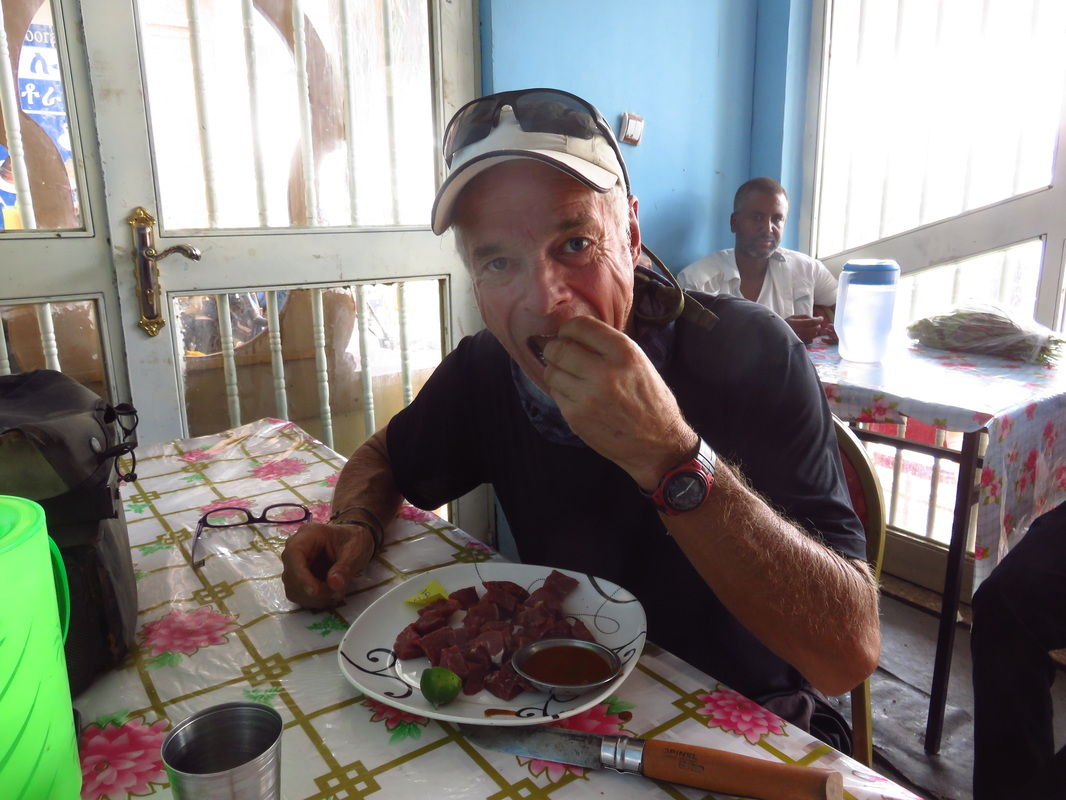
Ethiopians still relish raw meat, and the recipe hasn’t changed too much.
How could it? Raw is raw, no preparation required. You melt some Ethiopian butter (niter kibe), combine it with freshly ground beef, toss in the requisite spices, and voila, it’s what’s for dinner – a favorite Ethiopian dish called kitfo.
Unless, of course, you don’t fuss with all of that. Just take some bite-sized chunks of raw beef, dip it into the red pepper paste awaze, or the even hotter red pepper powder mitmita, and you’re feasting on gored gored.
Ethiopian Food ♦ Mesob Across America
A COMPANION SITE TO THE BOOK BY HARRY KLOMAN
